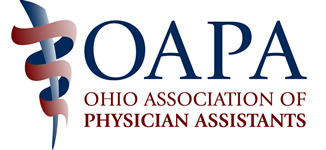Complete Story
05/19/2024
LEGISLATIVE ALERT: OAPA Gives Opponent Testimony on SB 60
UPDATED May 21, 2024:
FIRST PUBLISHED May 19, 2024:
The Ohio Association of Physician Assistants tirelessly advocates for Ohio PAs, including raising our voice when we see legislation that may negatively impact PA practice.
Senate Bill 60 (S.B. 60) will have its 6th hearing in the Workforce and Higher Education Committee. Nearly a year ago (May 31, 2023), OAPA provided opponent testimony at the bill's 3rd hearing.
From OAPA Vice President Michell McDiffett's 2023 testimony:
"While we applaud the sponsor and proponents for seeking to address our state’s shortage of mental health professionals, OAPA believes there are better ways to address the issue. Primarily, OAPA believes that creating a new provider, which is duplicative of services provided by PAs and APRNs, is unlikely to address the issue...
Additionally, the creation of certified mental health assistants will likely reduce the number of clinical sites available for training PAs and NPs, potentially creating new problems. Moreover, creation of this new provider does not address the underlying issue that was raised in previous testimony to this committee, the loss of psychiatrists...
OAPA believes the better path is to make Ohio more appealing for PAs to practice in the state...For example, Ohio law could be amended to allow PAs to “pink slip” patients who are a danger to themselves or others, like PAs are allowed in other states."
Since that May 2023 hearing, the bill has moved slowly but received proponent testimony from many supporters. However, it has also earned key opposition from the Ohio State Medical Association.
In the 6th hearing, McDiffett will again stress OAPA's position on this legislation, including these planned comments.
"Why is this committee focused on creating a new health care professional instead of addressing issues in our code that would attract and retain medical students and professionals already in the state of Ohio? Many of these are simple solutions that we have suggested to this committee and others in this General Assembly and previous ones.
Ohio is one of the few states in the country that do not allow PAs to pink slip. This restriction in law, despite PAs extensive training, discourages a new PA graduate interested in mental health from working in Ohio. Other suggestions are removing the statutory ban on PA advertising, add PAs to the Ohio Preceptor Tax Incentive for taking PA (and/or NP students), or remove the statutory clause that makes a physician liable for a PAs mistake, which discourages physicians from entering into supervision agreements with PAs. This body could remove the requirement for on-site supervision of a PA by a physician for the first 500 hours of practice makes new graduate PAs undesirable candidates for employers who do not have the full-time physician workforce to provide the oversight.
Those are PA-focused suggestions. Another, more general, option is to increase the reimbursement rates for mental and behavioral health to make those fields more attractive to existing health care providers. S.B. 60 is certainly a novel approach, but even if this bill is signed into law today, it will take years before a certified mental health assistant is able to see a patient. OAPA is presenting you solutions for right now."
How Can You Help?
If you are a constituent of a member of the Ohio Senate's Workforce and Higher Education Committee, please reach out to your senator to share your thoughts and encourage the committee members to listen carefully to McDiffett's testimony and oppose this legislation when it comes to a vote.
Would you like to watch OAPA in action as we pursue legislative victories for YOU and all of Ohio's PAs?
Tune in LIVE to the Ohio Channel at 4 p.m. on Tuesday, May 21, to watch OAPA Vice President McDiffett's opponent testimony in front of the Senate Workforce and Higher Education Committee.
To further help us advance PA practice through government advocacy, please support the OAPA Legislative Fund!

